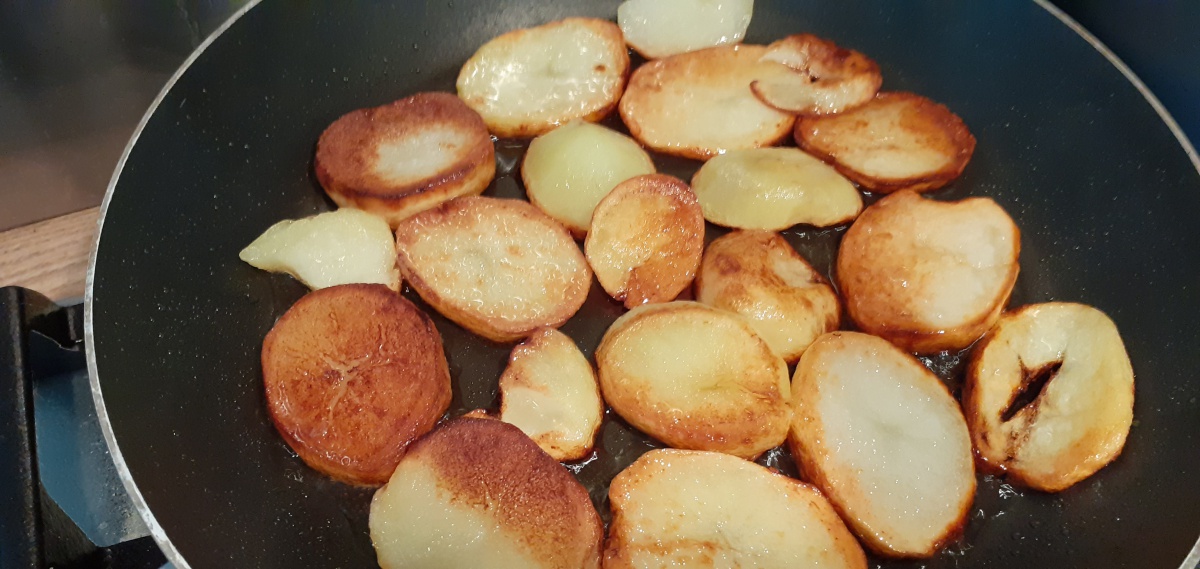“Confit” is a noun, but also a verb. Heres a quick primer that demystifies this classic French cooking method. Trending Videos
Confit refers to the process of slow cooking and storing food in fat. Confit is a French word that means “preserved.” In the confit method, meats are cooked in fat for a long time at low temperatures. This renders tough cuts like duck legs more tender, and when stored in duck fat in a cool place, they last all winter.

From Preservation Method to Modern Delicacy
While the method was originally created as a matter of necessity—meats needed to be preserved in the days before refrigeration—as with many such foods, the process lingers on as a matter of good taste. Originally, meats destined to turn into confit—duck legs, goose, gizzards, kidneys, pork bellies, etc.—would be cured overnight in a mixture of salt and aromatics, the salt further creating an inhospitable environment for bacteria. These days, theyre cured simply because, well, it tastes damn good.
Another interesting modern-day twist is that the term “confit,” originally a noun, is now used as a verb in modern English-speaking kitchens. “Im going to confit this pork belly,” or, “Lets serve those lambs tongues confited.” You see confit on a menu? Chances are it has not been aged and stored under its fat or syrup for more than a few days. Heck, it may have been cooked just that morning.
How It Works
So we come again to the question: If were submerging something in fat and cooking it, how come the results are so different from deep-fat frying?
With deep frying, the end-game is a crisp, crunchy surface, and the means to get there? Dehydration. At high temperatures, water is very rapidly and forcefully expelled from surfaces due to evaporation. When you drop a battered cod fillet or a breaded chicken finger into hot oil, its water content quickly turns into steam, bubbling up and out of the oil. Meanwhile, the high heat triggers the Maillard reaction, a series of chemical reactions that develops flavor and turns foods that delicious golden brown. Cooking times are measured in minutes or seconds, and as soon as the food is done, its retrieved and served.
:max_bytes(150000):strip_icc()/__opt__aboutcom__coeus__resources__content_migration__serious_eats__seriouseats.com__recipes__s__20120113-buffalo-wings-new-01-e6650d315f634051b165b304a130f137.jpg)
A confit, on the other hand, is a much cooler affair. Generally, cold or room temperature fat is poured over the item-to-be-confited, then its placed in a relatively low-temperature oven, say, 250 to 275°F (120 to 135°C). During the course of cooking, the fat temperature will not rise much above 190 to 200°F (88 to 94°C)—hot enough to break down tough connective tissue, but not hot enough to boil water or cause much evaporation. Meats cook and tenderize with virtually no moisture loss or flavor loss. Cooking times are measured in hours, rather than minutes.
Confit is to deep frying what barbecue is to grilling. Low and slow versus fast and furious.
How To Cook The Perfect Steak | Duck Fat Ribeye Steak | Chef Mags
FAQ
What is it called when you cook duck in duck fat?
What is a confit in cooking?
What is duck cooked in its own fat?
What is it called when you cook something in oil?
What is duck fat?
Duck fat is the liquid fat obtained from duck meat, typically through a slow cooking process called rendering, that allows the fat to melt and separate from the meat. A popular culinary ingredient, duck fat adds a distinctive taste and imparts a deliciously crispy texture to foods.
What can I use duck fat for?
Searing: Use duck fat to sear meats, poultry, fish, and shellfish for a uniform and flavorful crust. Suggested meats include steak, pork chops and loins, chicken breasts, fish, scallops, shrimp, and many more options. Roasting Poultry: Before roasting, generously apply duck fat under the skin, covering over both the breast and legs.
What can you cook with duck fat?
Using duck fat to sear meats, poultry, fish, and shellfish is a surefire way to achieve an evenly browned, flavorful crust. Try it with veal chops, pork loins, chicken breasts, scallops, shrimp and much more. 4. Duck Fat on Vegetables Oven-roasted and sautéed vegetables earn gourmet cred when tossed in duck fat before cooking.
What does duck fat taste like?
Meals created with duck fat are rich and complexly flavored. Duck fat’s stand alone flavor is quite neutral. Instead, it activates the flavors of the foods it cooks. It had a new layers of richness and really allows you to taste the essence of the flavors of vegetables, meats, and fish. Did we mention you can bake with it? Duck fat smoke point
